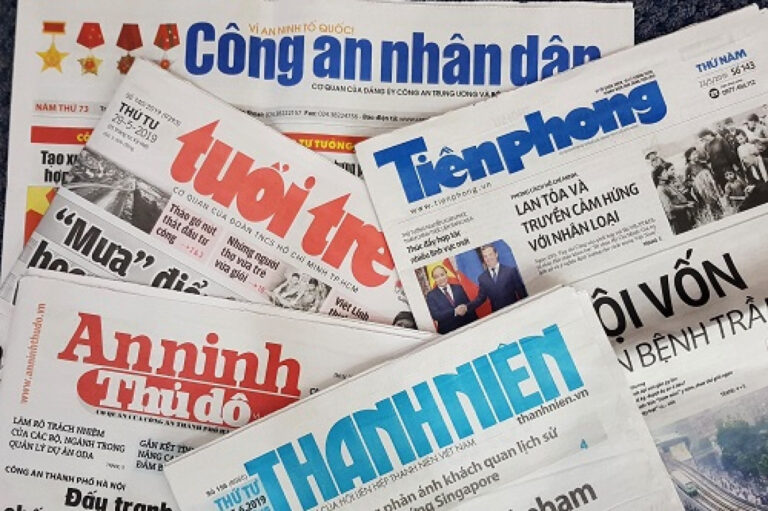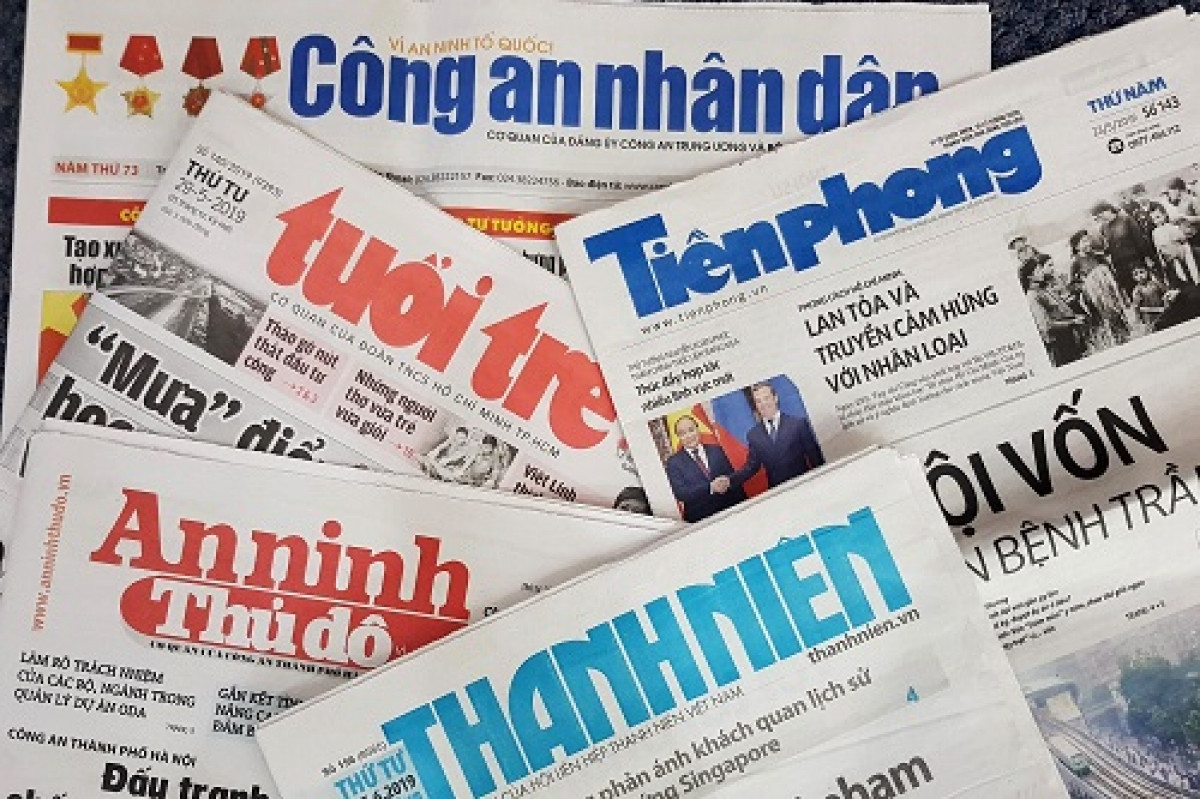

At that time, some newspapers issued 500,000-700,000 copies, while the number of ad pages were up to 120 pages, or six times higher than the number of content pages. Even small newspapers also contained dozens of ad pages.
This was a golden time for printed newspapers, when the country experienced 10 years of Doi Moi (renovation). However, when e-newspapers emerged, the number of printed newspapers began decreasing. When e-newspapers appeared on mobile devices, the number of printed newspapers and ad pages decreased further.
When cross-border social networks appeared, both print and e-newspapers saw sharp falls in both the number of publications, page views, and revenue from ads and media.
Technology has changed the behavior of newspaper makers and readers, and the life of the public.
Speaking at a national conference on Policy communication: Awareness – Action – Resources held on November 24, Minister of Information and Communications Nguyen Manh Hung cited a report as saying that 80 percent of revenue from online ads go to foreign platforms and Vietnamese newspapers have only 20 percent.
Considering the entire ad market in all media, Vietnam’s newspapers still have 40 percent. The source of revenue has dropped sharply by tens of trillions of VND. Press agencies are facing big difficulties.
Mentioning solutions for Vietnam’s revolutionary newspapers to become stable and seek ways to develop, Minister of Information and Communication Nguyen Manh Hung said previously we thought that in order to develop newspapers, we just needed a pen and paper, and we did not need to invest heavily on press agencies.
But this is no longer true in the new conditions.
“Nowadays you cannot develop newspapers if you don’t have technology. Social networks and digital platforms have encroached on the field of newspapers because they are strong in technology. If you lag behind in technology, you won’t be able to retain readers,” Hung said.
He stressed that governing bodies need to help press agencies renovate technologies. The strategy on digitizing press agencies that the Prime Minister is going to approve aims at realizing the 13th Party Congress’s Resolution on a modern, professional and humanitarian press.
Digital technology has the strongest influence in the field of communication. It has destroyed the traditional communication model. Newspapers, if they want to survive, must digitize and become technology organizations.
Thai Khang